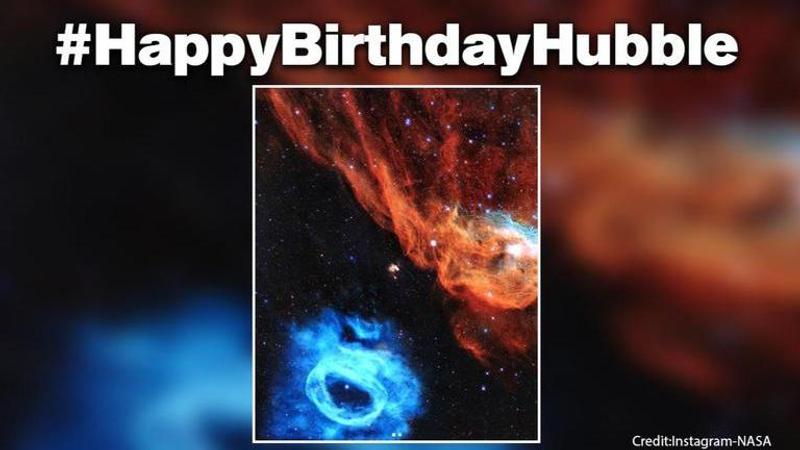Published 08:43 IST, April 25th 2020
NASA celebrates 30 years and 1.4 million observations of Hubble with 'Cosmic Coral Reef'
With yet another stunning portrait of cosmic phenomena, NASA celebrated the 30th anniversary of it's prized Hubble Space Telescope with an iconic new image.

With yet another stunning portrait of cosmic phenomena, NASA celebrated the 30th launch anniversary of it's prized Hubble Space Telescope by unveiling an iconic new image a firestorm of star birth in a neighboring galaxy.
In the latest Hubble image shared by NASA, the giant red nebula (NGC 2014) and its smaller blue neighbor (NGC 2020) are part of a vast star-forming region in the Large Magellanic Cloud, a satellite galaxy of the Milky Way, located about 163,000 light-years away. The image has been nicknamed the 'Cosmic Reef' owing to its resemblance to the undersea world.
Take a look at the iconic image here:
Hubble's long haul
On 24 April 1990, NASA shot the giant telescope into the Earth's orbit from it's Kennedy Space Center in Florida. The Hubble was carried aloft on the Discovery space shuttle with a five-astronaut crew. The highly advanced telescope has revolutionised our understanding of space and modern astronomy with over 1.4 million observations to date and its iconic images continue to redefine our view of the universe and our place in time and space.
Unhindered by Earth's blurring atmosphere, the Hubble telescope captures cosmic underpinnings with crystal-clear sharpness across a broad range of wavelengths - from ultraviolet to near infrared light.
As recorded by NASA, the giant telescope's top accomplishments include measuring the rate of expansion and acceleration of the universe, establishing that black holes are common phenomena across galaxies, monitoring weather patterns of planets in the solar system, and looking back in time across 97% of the universe to chronicle the birth and evolution of stars and galaxies.
Taking the celebration a step further, NASA also released a descriptive video giving a tour of the stunning 'Cosmic Reef' image and describing the telescope's current health as Hubble's senior project scientist, Dr. Jennifer Wiseman detailed on some of Hubble's contributions to modern astronomy in the course of its 30-year career.
Take a look at it here:
Updated 08:43 IST, April 25th 2020



